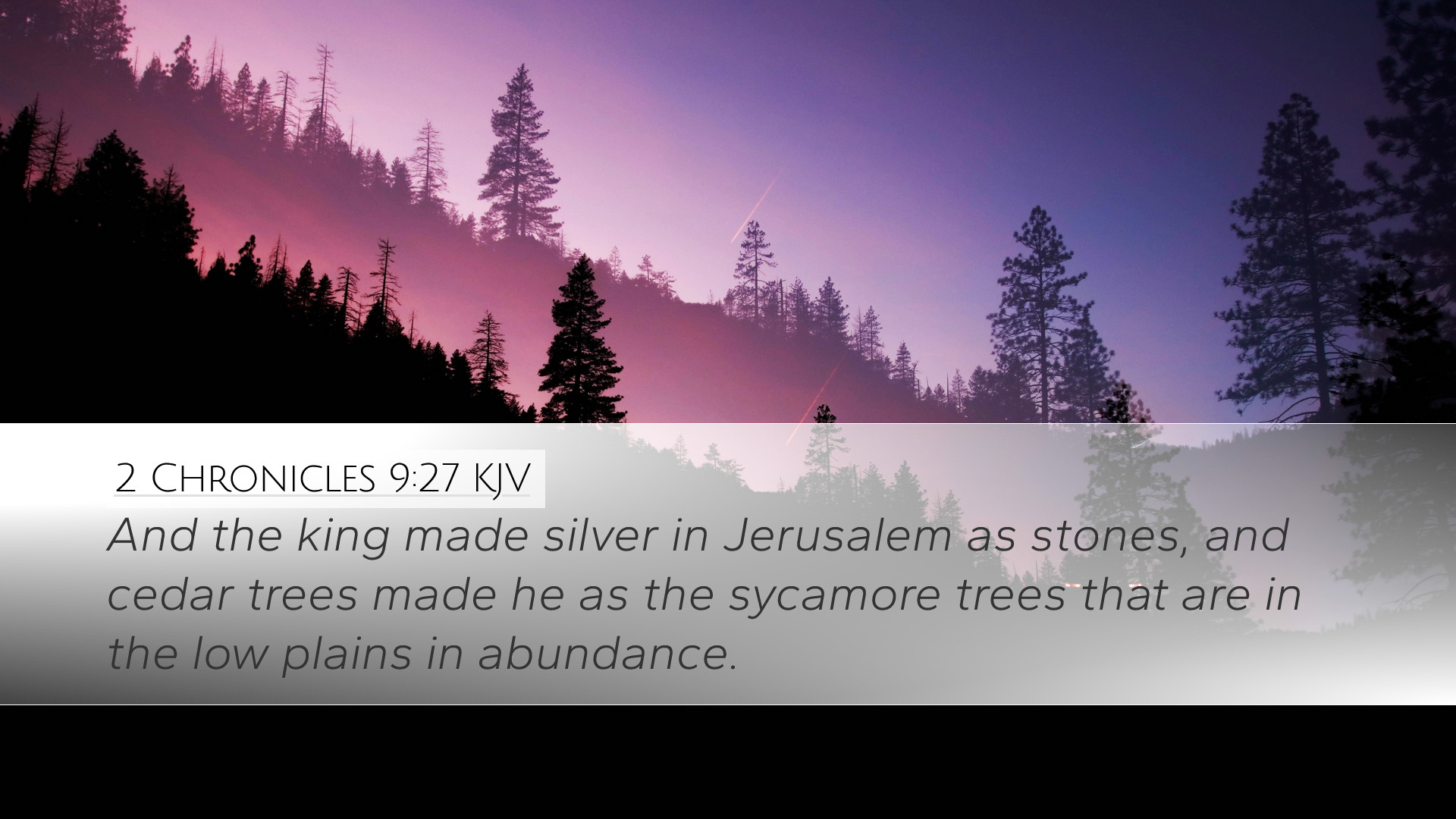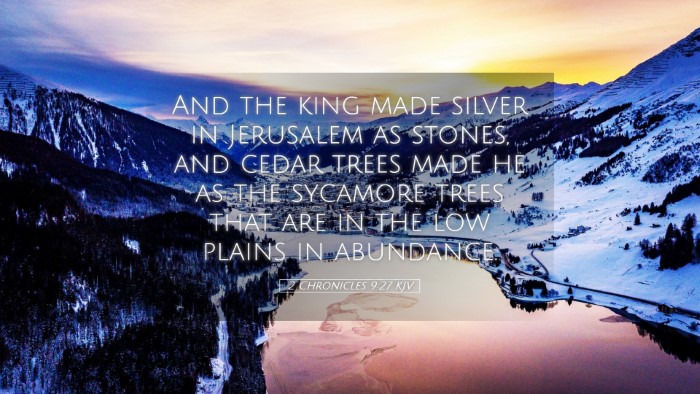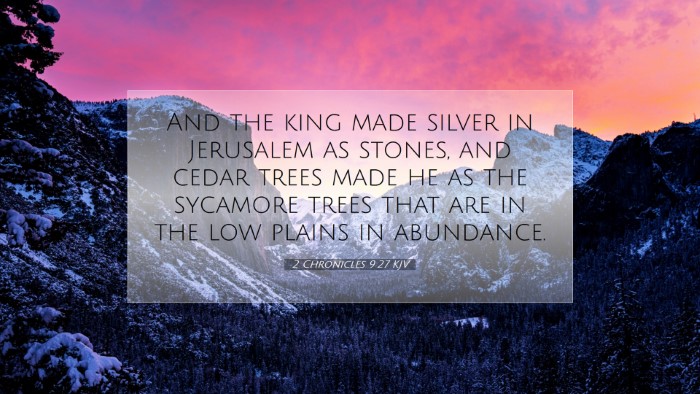Commentary on 2 Chronicles 9:27
Verse Text: "And the king made silver and gold as plenteous in Jerusalem as stones, and cedars made he as the sycamore trees that are in the vale for abundance."
Introduction
This verse is nestled within the narrative of King Solomon's reign, highlighting the immense wealth and prosperity that characterized his kingdom. It underscores two main themes: the abundant resources that God bestowed upon Solomon and the wisdom that facilitated such prosperity. This commentary draws insights from public domain sources, seeking to provide a rich exploration of this scripture for scholars, pastors, and students alike.
Wealth in Solomon's Kingdom
The first part of this verse speaks to the lavishness of Solomon's reign. Matthew Henry notes that the wealth accumulated during Solomon's time was unparalleled, making silver and gold as common as stones. This image serves as a metaphor for divine blessing, encapsulating the idea that God's favor leads to material abundance.
Historical Context
In examining the historical context, Albert Barnes emphasizes the significance of silver and gold in ancient economies. The enormity of Solomon's wealth, as stated here, illustrates not only his success as a ruler but also the fulfillment of God’s promises to David concerning the prosperity of his lineage. Solomon's wealth is thus presented as a direct result of divine benevolence and wise governance.
Symbolism of Silver and Gold
Silver and gold are more than mere currency in this context; they symbolize purity and value, indicative of God's presence in His blessings. Adam Clarke elaborates on this by stating that wealth should not only be understood in physical terms but as a representation of divine relationship. The abundance of these metals can signify the richness of God's grace toward His chosen people.
Comparison with Cedars and Sycamore Trees
The latter part of the verse compares the abundance of cedar wood to sycamore trees, suggesting a momentous achievement in terms of natural resources. Henry notes that cedars were valued for their strength and durability, which could represent the enduring nature of God's blessings. The sycamore trees were more commonplace, suggesting that the provision of cedars was a sign of extraordinary favor.
Understanding the Two Types of Trees
Clarke provides insight into the importance of the types of wood discussed. Cedars, often imported from Lebanon, symbolize luxury and strength, while sycamores, being more common, symbolize accessibility. The juxtaposition signifies the duality of God's blessings—both abundant and special. This might point toward the broader theological understanding that God's provision extends across all classes, available for both the humble and the wealthy.
Theological Implications
This verse invites reflection on how material wealth can be indicative of spiritual richness in one's life. It serves as a reminder of the relationship between divine favor, leadership, and stewardship. Barnes concludes that Solomon’s management of resources illustrates the wisdom needed to lead effectively. This calls forth an evaluation of modern leadership principles in light of biblical wisdom.
Practical Applications
For pastors and theologians, the abundance presented in this verse should challenge contemporary ideals surrounding wealth and blessing. This passage encourages believers to consider how their resources are managed in both the church and individual lives. Questions arise concerning stewardship—how are we using our ‘silver and gold’, or our God-given resources, for the benefit of others and for glory of God?
Encouragement for Believers
For students and scholars, the narrative offers a reminder of God's heart to bless his people abundantly. The richness of his provision should inspire gratitude and a sense of responsibility. It suggests that believers ought to widen their understanding of God's blessings to include both material and spiritual wealth. The abundance in Jerusalem represents a kingdom that seeks to reflect God’s sovereignty and grace.
Conclusion
2 Chronicles 9:27 stands as a testament to the extraordinary nature of God’s kingship and blessings. It illustrates the potential of a life governed by divine wisdom leading to material and spiritual abundance. As we reflect on this text, may we strive for wisdom in our endeavors, seeking to live out the principles established in this powerful narrative. This commentary encourages engagement with both the historical context and practical implications, fostering a deeper understanding of God’s provision and leadership.


